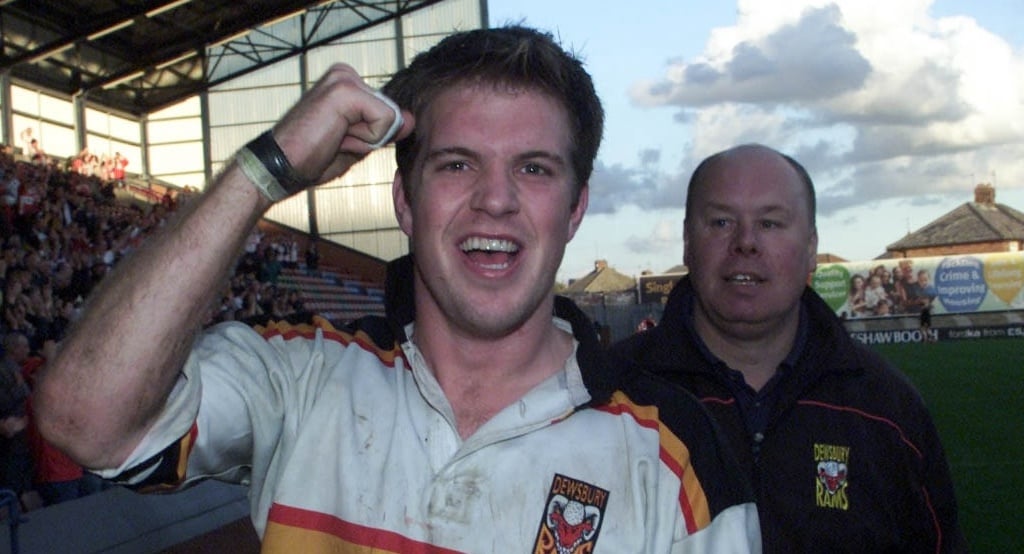The roar of the crowd, the thrill of the chase, the camaraderie of the locker room – these are experiences that define a rugby player's life. However, like all good games, a rugby career eventually reaches its final whistle.
While the transition away from the pitch can be daunting, it's also a chance to embark on a new chapter, leveraging the unique skills and experiences gained from the sport to forge a fulfilling and successful career beyond rugby.
Unveiling your transferable skills: the elite edge
Rugby isn't just about brute strength and athleticism; it's a complex tapestry of physical, mental, and emotional skills that are highly valued in various professions. What's more, these skills are often honed to an elite level in the high-pressure, competitive world of professional sport. Employers crave these qualities and character strengths, recognizing that they are uncommon amongst the ordinary population of employees.
Let’s explore some of these transferable skills and the potential career paths they open up:
Leadership and teamwork
On the field: As a rugby player, you've likely captained a team, organised plays, and motivated your teammates to achieve a common goal.
Off the field: These leadership and teamwork skills are sought-after in various industries, including management, coaching, sales, and project management. The ability to inspire and guide others towards a shared vision is an invaluable asset in any workplace.
Communication and collaboration
On the field: Constant communication is essential on the rugby pitch, whether it's calling out plays, providing feedback, or resolving conflicts.
Off the field: Strong communication and collaboration skills are critical for success in any profession, especially those involving client relations, team projects, or public speaking. The clarity and precision you've developed under pressure can make you a standout communicator in any field.
Problem solving and decision making
On the field: Rugby is a fast-paced sport that demands split-second decision-making and the ability to adapt to changing situations.
Off the field: These critical thinking skills are transferable to a wide range of professions, including engineering, finance, law enforcement, and emergency services. Your ability to stay calm and make sound judgments in high-stakes situations will be highly prised by employers.
Discipline and work ethic
On the field: Rugby requires rigorous training, dedication, and the ability to push through challenges.
Off the field: Employers value discipline and a strong work ethic. These qualities can lead to success in any field, particularly those requiring self-motivation and time management, such as entrepreneurship or freelance work. Your dedication and commitment to excellence will translate seamlessly into the professional world.
Resilience and mental toughness
On the field: Rugby players are no strangers to setbacks and injuries. Overcoming these challenges requires mental fortitude and the ability to bounce back stronger.
Off the field: Resilience and mental toughness are essential for navigating the ups and downs of any career. Consider professions where challenges are part of the daily routine, such as healthcare, social work, or the military. Your ability to cope with pressure and adversity is an invaluable asset in any workplace.
Physical fitness and wellness
On the field: Rugby demands peak physical fitness and a deep understanding of health and wellness.
Off the field: Your expertise can translate into careers in personal training, fitness instruction, physiotherapy, or sports nutrition. Your passion for fitness and well-being can inspire and motivate others.
Exploring potential career paths
The skills you've honed on the rugby field can open doors to various exciting career paths. Here are a few examples:
Coaching and sports development: Share your knowledge and passion for the game by coaching at various levels or working in sports development programmes.
Strength and conditioning: Leverage your understanding of physical training to help others achieve their fitness goals.
Sports management and administration: Apply your leadership and organisational skills to manage teams, events, or sports facilities.
Media and broadcasting: Utilise your communication skills and insider knowledge to become a sports commentator, analyst, or journalist.
Education and youth work: Inspire and mentor young people by working in schools, community centres, or youth sports organisations.
Uniformed services: Your discipline, teamwork, and physical fitness make you a strong candidate for careers in the police, fire service, or military.
Business and entrepreneurship: Transfer your problem-solving and decision-making skills to the business world, either within an established company or by starting your own venture.
Taking the next steps
The transition from professional rugby to a new career can be both exciting and challenging. Here are some steps you can take to ensure a smooth and successful transition:
Self-assessment: Identify your key skills, interests, and values. What are you passionate about? What kind of work environment do you thrive in?
Career exploration: Research different career paths that align with your skills and interests. Talk to people in those fields to gain insights.
Skill development: Consider further education or training to enhance your qualifications and expand your skillset.
Networking: Build relationships with people in your desired field. Attend industry events, connect with mentors, and leverage your existing network.
Seek guidance: Utilise career counselling or transition programmes specifically designed for athletes.
Remember: Your rugby career has not only brought you physical strength and athletic prowess but also cultivated an elite mindset and a unique set of transferable skills that are highly desirable in the professional world.
Don't underestimate the value of your experience! Embrace the transition, explore your options with confidence, and pursue a fulfilling and successful career beyond the field. The final whistle may have blown on your rugby journey, but a new chapter awaits, full of exciting possibilities.
Quote
"The future belongs to those who learn more skills and combine them in creative ways”
- Robert Greene
|
Related Articles


James Elston | Transition
John Ledger | April 17, 2024
After a nine-year professional playing career with Dewsbury, York and ...
Read More
%20(1).jpg)
Transferable skills for post career success
Francis Stephenson | September 4, 2023
The transition from a professional sports career to the world of work can ...
Read More
%20(1).jpg)
Free Google course: Build your CV
Francis Stephenson | April 3, 2024
So you've smashed it on the pitch, but what about off it? As a ...
Read More